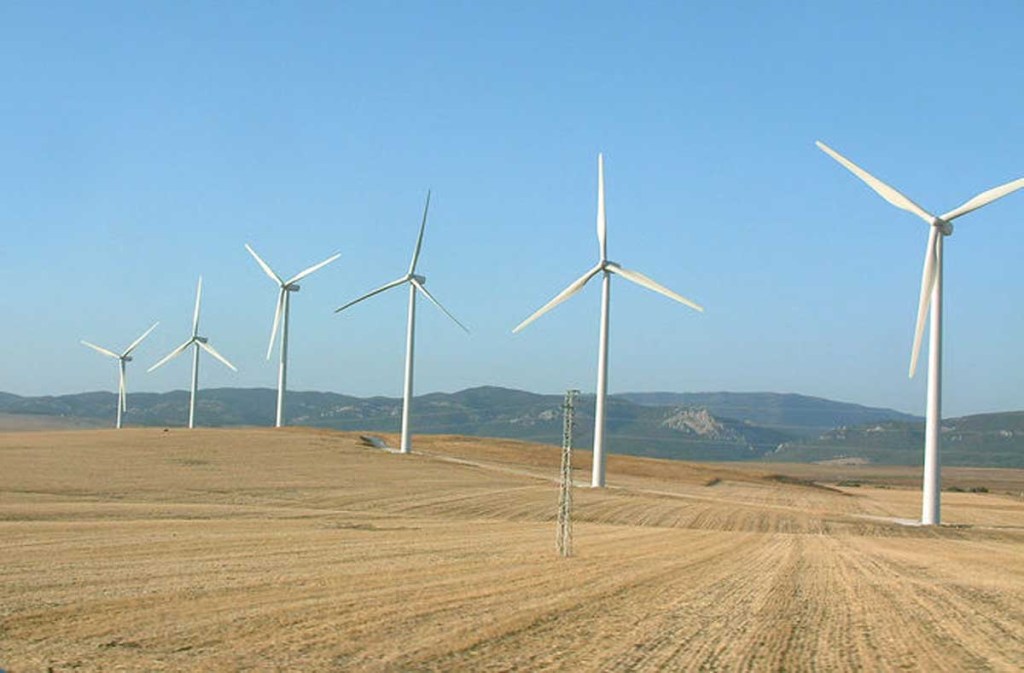Massachusetts green groups push ambitious energy plan
Published 8:33 am Tuesday, February 14, 2017

- wind power
BOSTON — Environmentalists want the state of Massachusetts to phase out fossil fuels by accelerating a shift to renewable energy sources such as hydropower, wind and solar over the next three decades.
An ambitious proposal sets the state on a path to 100 percent renewable energy use by 2050, with aggressive targets for green power across all sectors of the economy and new rules to ensure the state stays on track.
“We know that we’re not going to get to 100 percent renewables overnight, but we need to start moving in that direction as quickly as possible given the challenges of climate change,” said Ben Hellerstein, state director for Environment Massachusetts, which is leading the campaign.
Proposed legislation includes mandates that require electric utilities to get 100 percent of their energy from renewable sources by 2035. It would require other sectors — such as transportation and home heating — to be powered entirely by renewables by 2050.
Rep. Sean Garballey, D-Arlington, a primary sponsor of the bill supported by more than 50 lawmakers, said the goal is ambitious but achievable.
It will reduce the state’s carbon footprint, improve air and water quality, and create new jobs in the budding renewable energy sector, he said.
“More importantly, it signals to the country our commitment to long-term solutions in meeting the very real challenges of climate change, and lights the way for similar efforts across the nation,” he said.
The fossil fuel industry is chafing at the plan.
Steve Dodge, executive director of the Massachusetts Petroleum Council, said major oil and gas companies are already pursuing clean energy projects to diversify their portfolios with solar, wind and other alternative power sources.
“We have invested more in renewables than any other private entity,” he said. “That includes reducing our greenhouse gas footprint.”
As the state adopts more aggressive clean energy policies, he added, natural gas should be part of the equation.
“Natural gas used to be the fair-haired child of environmental community,” he said. “Now we’re considered part of the evil empire, even though it’s one of the sole factors behind the reduction in greenhouse gases in New England.”
Utilities say they’re also expanding their portfolios to include clean energy, as well, but they share concerns about excluding natural gas from the mix.
Michael Durand, a spokesman for Eversource, said solar and wind producers alone can’t provide enough juice to meet the state’s energy demands.
Natural gas-fired power plants “provide the grid stability necessary for regional reliability,” he added.
“This is especially important at night, on cloudy days and when the wind isn’t blowing,” he said. “The current lack of adequate natural gas infrastructure is threatening our region’s energy reliability, driving up costs and hurting efforts to lower greenhouse gas emissions.”
Massachusetts faces a looming energy crunch with an anticipated loss of more than 10,000 megawatts of power over the next few years as fossil-fueled plants are shut down. The Pilgrim nuclear plant in Plymouth is scheduled to go dark in two years.
About half of New England’s energy now comes from natural gas, while a third comes from nuclear power, according to ISO New England, the organization that oversees the regional power grid.
Coal accounts for about 5 percent of the energy sent to the grid. Hydropower, solar and other renewables represent 15 percent. Only 1 percent comes from oil.
Gov. Charlie Baker signed a sweeping energy bill last year that seeks to boost the state’s use of renewable energy by requiring utilities to solicit long-term contracts for importing a combined 2,800 megawatts of hydroelectricity and offshore wind by 2027.
The measure requires utilities to make plans to store energy from wind, solar and other renewables, which supporters say will help meet peak demand while lowering emissions and dropping overall costs.
The Baker administration needs to meet benchmarks to reduce its carbon footprint by 25 percent of 1990s levels within three years, and 80 percent by 2050, to comply with the Global Warming Solutions Act, a federal law the state signed onto several years ago.
Last year, the state Supreme Judicial Court ruled that Massachusetts isn’t following that mandate and other laws aimed at reducing those emissions. It required annual limits on greenhouse gas emissions until the state meets the environmental goals.
Nationwide, more than a dozen Fortune 500 companies — including WalMart, Google and General Motors — have committed to pursuing 100 percent renewable energy targets. Several big cities, like San Diego, have also committed to relying only on renewables.
Meanwhile President Donald Trump’s pledges to rebuild the coal industry has worried renewable energy supporters about the progress made to make solar and wind competitive against coal and natural gas.
Hellerstein and other supporters of renewable energy said the state needs to ramp up efforts to counter White House moves to prop up the fossil fuel industry.
“Massachusetts should be leading the way on the growth of the renewable energy market,” he said. “But we need state leaders to step up for that to happen.”
Christian Wade covers the Massachusetts Statehouse for the North of Boston Media Group’s newspapers and websites. Reach him at cwade@cnhi.com.

